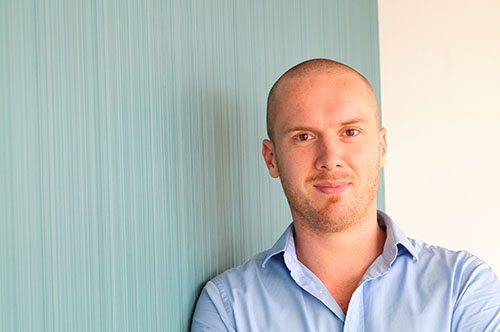What do you currently do?
I am the founder of Biggerplate.com, the world’s largest online mind map library and community. On a day-to-day basis I oversee the development of our web platform, whilst also looking to build connections and strategic partnerships with individuals and organisations around the world who are using mind mapping in a variety of business and education contexts.
What is your inspiration in business?
My inspiration comes from trying to help other people achieve the same results and improvements that I was fortunate enough to experience at university when I first encountered mind mapping software.
Having constantly struggled at school and university with the volume of course content, and my own lack of organisational skill, I was facing a fairly bleak academic outlook until I was introduced to Mindjet mind mapping software. As a last role of the dice, I used Mindjet to map out my course content, and miraculously managed to emerge with a degree, which had at times looked highly improbable.
The discovery of mind mapping software unlocked things for me, and this experience was the original inspiration for Biggerplate.com, as I wanted to create a site where students could share Mindjet mind maps for others to use. Now the site has grown to include a great deal of business and education content, my inspiration comes from seeing how other people achieve similar ‘eureka’ moments as they discover the impact this simple approach can have on their working and learning.
Who do you admire?
My three brothers. Each has pursued a very different career direction that is entirely of their own making, and a bold departure from the safer routes that their peers have taken. I’m full of admiration for anyone who tries to forge their own path, and I’m fortunate enough to be related to a few of these people, who provide a great source of ideas, learning, and inspiration for me and my work!
Looking back are there things you would have done differently?
If I had the chance to start again, I would commit 100 per cent to the business much earlier. For a while it seemed scary and impossible to do this while I needed to pay the bills etc, so I ended up working part-time on the idea for Biggerplate whilst working crazy hours in bars and restaurants to sustain myself. In reality, I didn’t do either job particularly well, and had I instead committed 100% to being broke for six months and working purely on the business at that early stage, we’d probably be much further along by now!
What defines your way of doing business?
I’m a big believer in the ‘lean startup’ approach, whereby you put something out there, and learn pretty quick from feedback if it’s any good or not. This approach defines our way of doing business, as it helps to create a continuous sense of momentum, improvement, and community engagement in what we’re doing.
In the early days, we would agonise over getting things perfect first time, and hold up our own progress by focusing on things that made no difference to the end user. Over time, we realised that it was more effective to build and test imperfect things sooner, in order to get instant feedback from our user base about what actually mattered to them.
The outcome is a better end product for our users, and a more focused use of resources, which in turn enables us to make more improvements more often. An additional bi-product of this approach is that our products and services, both online and offline, have a sense of being shaped by the community that they are intended to serve, which further aids in creating a strong connection and engagement between Biggerplate and our users.
What advice would you give to someone starting out?
Firstly; don’t try and get it perfect first time, otherwise someone will beat you to it, or you’ll simply never launch. Instead, adopt a disciplined learning mentality, and don’t be afraid to put out an imperfect prototype that will give you the instant feedback and learning you need to ensure you focus your efforts/energy/money in the right areas.
The second related tip is to get clear on the metrics that matter to your business, and monitor them relentlessly. I always remember hearing the expression ‘what gets measured gets managed’, and this is absolutely true. It’s really important that you give yourself the means to measure your progress, and equally important to recognise that the most significant metric for your business may not necessarily be financial, especially in the very early days. Think about the metrics behind the money, which could be things like website visits/registrations, customer site visits, or product demos for example.


